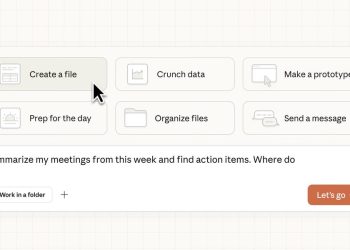- Moon Hough is an Airbnb owner whose property is about 30 minutes from Nairobi, the capital of Kenya.
- Hough’s property is built from reused shipping containers, and guests can see resident wildlife.
- “Guests can also play farmer during their stay by milking goats or collecting eggs,” Hough said.
This as-told-to essay is based on a conversation with Moon Hough, an Airbnb owner in Kenya. It has been edited for length and clarity.
A few years ago, when I was 25 years old, my husband and I bought the land our unique Airbnb now sits on. It was about 30 minutes from Nairobi, the capital of Kenya.
We weren’t thinking of even building anything at first, because the land was remote, quiet, empty of people, and full of wildlife. When we did decide to build, we chose shipping containers primarily because the area had no electricity or running water. If we had to add in all those amenities, there was no option of building a home on-site and staying within our budget of $20,000.
We wanted to build something sustainable
The shipping containers were reused from a shipping company. They were “created” off-site in Nairobi’s industrial area, where welders spent about two months cutting and shaping the three containers.
Once ready, the shipping containers were moved by lorry into place. It was a scary experience — the containers were placed on concrete bollards, so they could hang off the cliff overlooking Rift Valley.
Courtesy of Moon Hough
By the end of the build, we’d either made everything ourselves or bought locally
My husband loves learning from videos he sees on YouTube and applying what he learns. We employed experts for the more technical jobs, of course, like building the shipping containers.
Meanwhile, I decorated the house only using designers from inside Kenya, which makes the residence feel homely and fun.
Courtesy of Moon Hough
We decided to make the house into an Airbnb
By 2019, my husband and I left Nairobi and opened our own tented safari camp in the north of Kenya. We had planned to keep the container house as our Nairobi base, but three months later, we found ourselves in lockdown during COVID-19 and with no earnings for our new business.
I thought about putting the home on Airbnb as a way of making some extra cash. The container house was 100 meters inside the Nairobi lockdown zone, and it was an instant success because of Nairobians who stuck inside the city found the space as an escape.
Not to mention, its cool exteriors looked great on Instagram.
It’s hugely fun to own and run this property
I love how Nairobi’s coolest come and stay in our property. We’ve had music videos filmed here, Kenya’s elite party here, and fashion brands use it as a shoot location.
The house is currently $160 per night and sleeps four people, and it’s booked 25% to 60% per month (depending on seasonality).
Courtesy of Moon Hough
Aside from the location, there’s plenty for guests to enjoy
Guests love my dog, Rangi, who lives at the house. There’s the amazing deck and a stunning view with miles of emptiness and only the sound of cattle bells to wake you up.
Guests can also play farmer during their stay by picking home-grown veggies in the garden, milking the goats on site, or collecting eggs from the chicken coop. They’re surprised that we have so much wildlife still living near the house — a resident leopard can often be heard at night.
I’ve been surprised by how expensive it is to run an Airbnb
There’s a lot of maintenance and things get broken in an Airbnb. Plus, I’ve made bigger changes in the years since opening it, like adding solar power for the house (although the fridge is still gas-powered).
I also like to keep the house feeling fresh, so I add new items to it often, as we get a lot of repeat visitors. For example, I’m currently adding finds from the local mitumba (secondhand clothes market).
Overall, having a unique Airbnb has been a great experience
I love how Airbnb makes hosting so easy and makes you feel protected. I really value it the more I use the platform.
One of the few drawbacks I’ve noticed, however, is the fees can be too high. This decreases my bookings, as it makes a decently priced getaway expensive.
But this drawback hasn’t prevented us from continuing to work with the platform. In fact, we’ve since moved on from containers to building a new Airbnb (at a different site) — this time out of cob (a mud mix) to take environmental housing to the next level.









